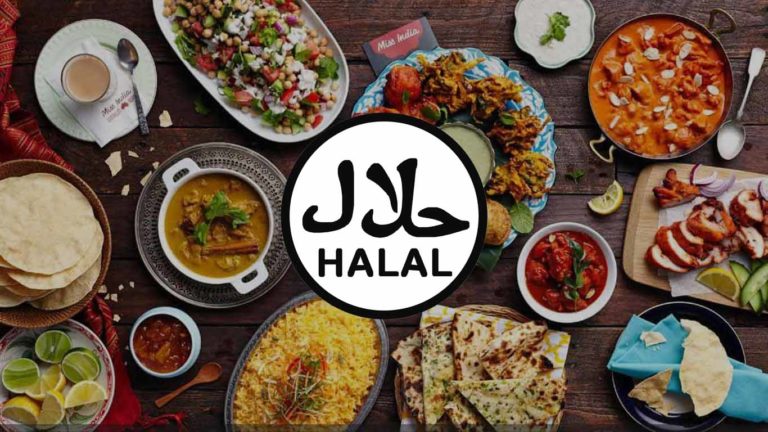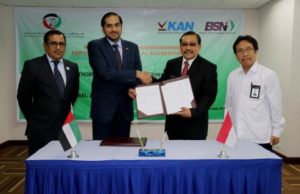Jakarta, MINA – Even though it has become mandatory, the Indonesian Ulema Council’s Food, Drug and Cosmetics Assessment Institute (LPPOM MUI) emphasized that halal certification is different from the licensing system. There is a series of product halal inspection processes that business actors must go through, without exception.
LPPOM MUI also emphasized three things that business actors must fulfill in the halal certification process, namely through an audit process, preparing unclean-free facilities, and the support of a reliable halal management team.
Marketing and Networking Manager of LPPOM MUI, Cucu Rina Purwaningrum, in LPPOM MUI’s report to MINA on Tuesday, stated that there are three things that business actors need to pay attention to before a halal certificate is issued. First, the audit process.
According to her, this is done to ensure that all materials used by producers are halal, starting from looking at proof of purchase, proof of inspection of the arrival of materials, proof of stock of materials in the warehouse, to proof of production.
Also Read: UAR Deploys 14 Volunteers to Aceh for Search, Rescue and Humanitarian Response
“Checked one by one, then traced, what materials were used? Then check it, is it true that what was used corresponds to what has been recorded? After that, check again, does the material have a halal certificate? Are there any supporting documents for this material or not?” She explained.
Halal certification is not something new in Indonesia. However, since the issuance of the Halal Product Guarantee Law in 2014, the previously voluntary nature of halal certification has become mandatory or mandatory.
This is different from licensing, a product that has received a halal certificate has gone through a series of halal inspection processes on the product.
Then what about laboratory analysis? Cucu explained that not all products can be proven halal by laboratory analysis. The laboratory analysis is to complete the audit process or field investigation.
Also Read: BNPB Deploys Aircraft to Deliver Emergency Aid to Flood-Hit Areas in Aceh
For example, how do you ensure that the meat that goes through the repacking process comes from a meat supplier that is halal certified?
This requires laboratory analysis to find out whether there was a contamination process during the repacking process. The next analysis that also needs to be considered is all the parts needed during the repacking process.
Another example, gelatin. Sources of halal gelatin are very limited, so tracing must still be done to ensure the gelatin is not contaminated. Drinks are also one of the products that must undergo laboratory analysis for ethanol testing.
As is known, the Fatwa of the Indonesian Ulema Council (MUI) states that the ethanol content cannot be more than 0.5 per cent . Then, election ink and waterproof cosmetics need to be tested for water penetration.
Also Read: MER-C Medan Deploys Medical Team to Support Flood Victims in Sumatra
“Meanwhile, outside of that, the system is a search. Not all products or java can be checked for halal through laboratory analysis. “For example, when we want to prove that the chicken used was slaughtered according to sharia or not, it is not possible to test it in a lab, but it must be done by direct investigation,” explained Cucu.
Second, production facilities must be ensured to be free from uncleanness. Some companies use joint production facilities with other companies. It may be that the ingredients used are halal, but the production facilities are mixed with products that contain unclean substances.
Therefore, there must be information confirming that production facilities are only intended for non-critical or halal products.
Third, the halal management team. As we all know, the audit process is not carried out every day. So, how do you ensure that business actors consistently produce halal products every day?
Also Read: 174 Dead, 79 Missing in Hydrometeorological Disasters in Indonesia
This is not an easy thing. Companies or business actors must be able to implement a Halal Product Guarantee System (SJPH). This means that the company prepares people who can act as an extension of the auditor, usually referred to as a halal management team or halal supervisor.
All procedures stated in writing, for example in Standard Operating Procedures (SOP), must be prepared. (T/RE1/P2)
Mi’raj News Agency (MINA)
Also Read: Power Outage Hits Entire Aceh, Residents Flock to Coffee Shops to Charge Phones
























 Mina Indonesia
Mina Indonesia Mina Arabic
Mina Arabic